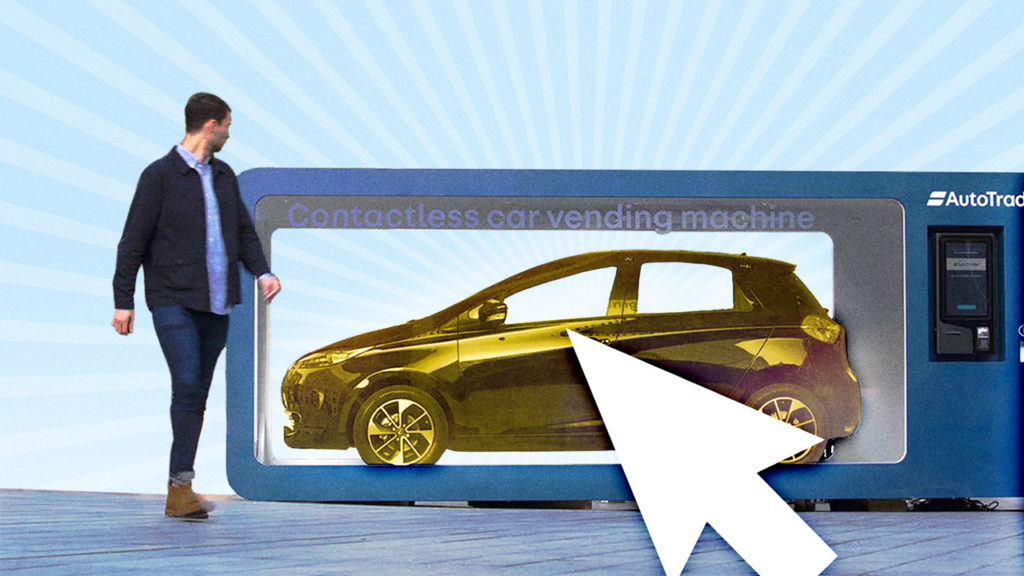Auto Trader, the digital marketplace for used and new cars, debuted the UK’s first contactless car vending machine in London’s Spitalfields Market. The experiment comes after 89 percent of British consumers said price haggling is embarrassing and uncomfortable in a study conducted by the brand. The bespoke car dispenser is meant to raise awareness of Auto Trader’s transparent price offering and help buyers skip the dreaded price negotiation process.
The buy-and-go installation allows purchases up to £21,000 (about $26,000) via a custom-made point of sale system, key release function and integrated payment and door release mechanic. Inside the vending machine to start is a new Renault Zoe, which, according to Auto Trader, is one of the most searched for electric cars in the UK with 463,277 searches in the past month. Auto Trader priced the car at £16,000, a figure that has already been approved by the dealer. The no-strings-attached price tag reflects 68 percent of Brits’ belief that if cars were sold online, pricing would have to be clearer and more consistent, per the brand study. It took six engineers and three months to design and build the car vending machine.
“We’re showcasing a real-life version on what can be found on Auto Trader; brand new cars at transparent pre-haggled prices that you can drive away today. The only difference is that this Renault Zoe can be purchased at the touch of a card, testing London car buyers’ appetite for electric cars as well as a more instant purchasing future,” said an Auto Trader spokesperson.
Auto Trader’s car dispenser experiment follows the brand’s multi-million-pound integrated campaign in June this year that lived across television, radio, broadcast video-on-demand (BVOD) and paid social and display ads through July. The campaign’s 30-second video spot shows a mob of parrots obnoxiously squawking to mimic the conflicting opinions buyers face from friends, family and media when searching for a car. The campaign, called “Silence The Squawk,” was estimated to be seen or heard a total of 541 million times by about 74 percent of the UK’s adult population, according to a press release.

